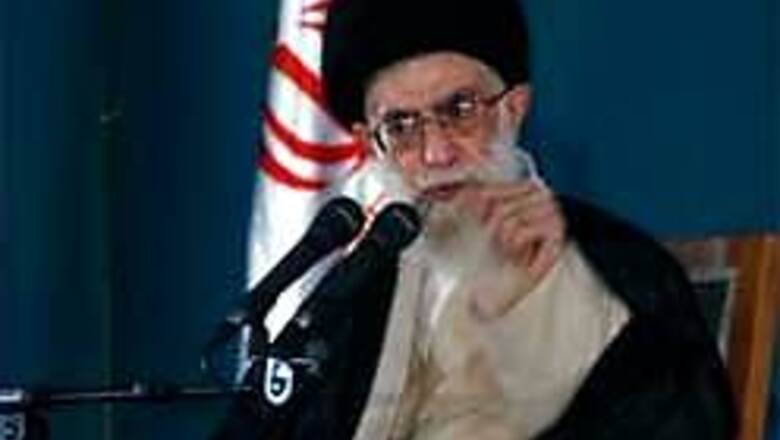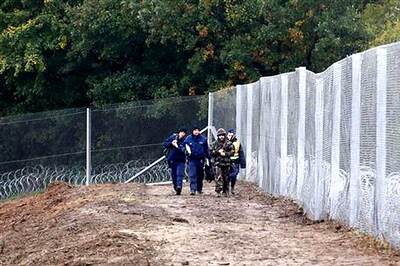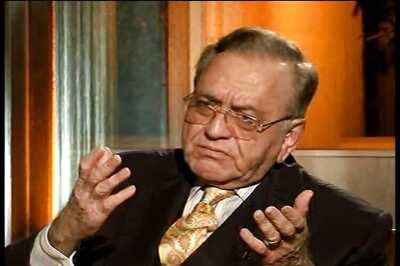
views
Tehran: Iran's supreme leader said Tuesday that "no wise nation" would pursue nuclear weapons, but his country will continue to develop its nuclear program for peaceful purposes.
Ayatollah Ali Khamenei appeared to be reacting to suggestions by the International Atomic Energy Agency (IAEA) that Tehran may be withholding information on secret attempts to make nuclear weapons.
Mohamed ElBaradei, the head of the IAEA, told the 35 nations on the agency's board that the Islamic Republic had not provided requested information needed for his investigation.
"Iran is after the peaceful use of nuclear energy and we will strongly pursue and reach it despite the envy of our enemies," Khamenei said at a ceremony Tuesday honoring the founder of the Islamic Republic, Ayatollah Ruhollah Khomeini.
"No wise nation is interested in making a nuclear weapon," he added.
The US and its allies accuse Iran of having a secret nuclear weapons program. In turn, Khamenei accused the US of using nuclear energy to maintain its dominance over other nations in the world.
He also warned against nuclear terrorism, saying that one day "world terrorists could attain nuclear weapons and take peace away from all the people in the world."
Iran is normally the focus of IAEA board meetings. But it was sidelined Monday by ElBaradei's announcement that Syria will allow his inspectors into the country to investigate allegations that a remote building destroyed in an Israeli airstrike in September was a nuclear reactor built secretly with North Korean help.
It's the start of an international fact check of U.S. and Israeli assertions that Damascus had tried to build a plutonium-producing facility under the radar of the international community, and the possible launch of a wider investigation of Syrian nuclear activities.
Diplomats told The Associated Press that during the June 22-24 visit, agency officials will also ask for information on the alleged existence of up to three such facilities that have not been declared.
PAGE_BREAK
ats, who demanded anonymity because of the sensitivity of their information, indicated they had their knowledge either from the U.S. or from IAEA officials.
One of them said the IAEA was following up on a U.S. intelligence-based tip of alleged unreported facilities to process any nuclear material. The diplomat emphasized the IAEA had not seen the intelligence itself.
Reprocessing capabilities would be required if the U.S. and Israel were correct in their claims that Syria was trying to build a reactor at the site leveled in Syria's eastern desert in September to gain the material needed to create the fissile core of nuclear weapons.
A nuclear expert outside the U.S. government indicated that at least one of the facilities was suspected of processing uranium. It, like plutonium, can be used for fuel or reworked into fissile warhead material. Reprocessing uranium is also part of the process of turning plutonium into usable warhead material.
He said the IAEA asked Syria several weeks ago for access to four sites — the bombed facility and three military sites that were identified by U.S. intelligence.
Two of the military sites are operational and one is still under construction, the expert said, speaking on condition of anonymity because his information came from private discussions. U.S. intelligence has linked one of the three sites, at least loosely, to the production of nuclear reactor fuel from uranium, he said.
The U.S. says the Israelis flattened the alleged reactor because it was close to startup.
Of the four diplomats who spoke to the AP, two said the Vienna-based IAEA was looking for two undeclared nuclear sites. The others spoke of three. The Syrians have already been informed about the suspicions, one of the diplomats said.




















Comments
0 comment